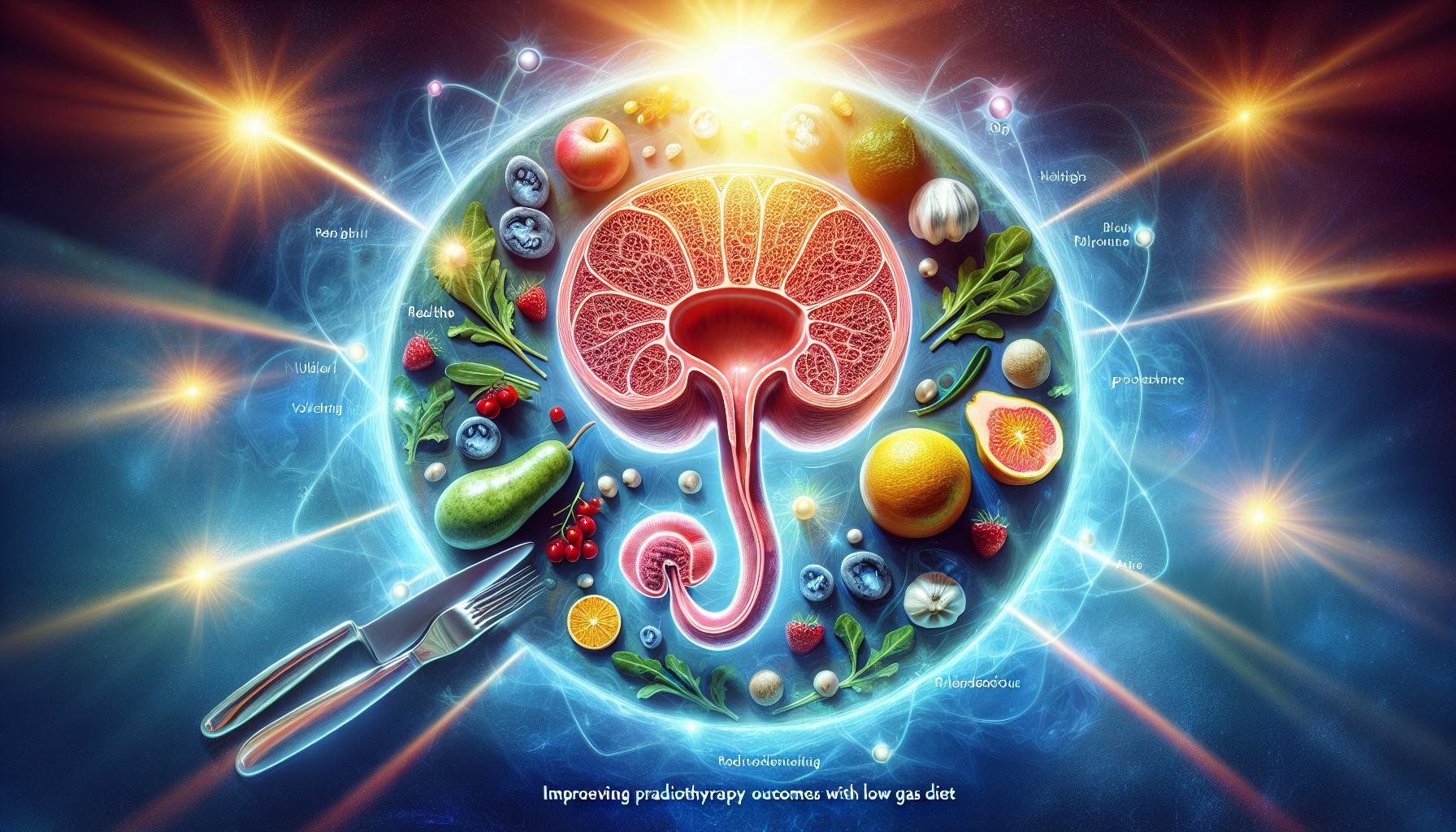Marvel at the Magic of a Minimized Methane Menu
In the battle against prostate cancer, could a low gas diet truly turbocharge the efficacy of radiotherapy outcomes? Absolutely! By adhering to a diet that reduces intestinal gas, patients can significantly enhance the positive results experienced with prostate radiotherapy. As we dive deeper, we’ll delve into the delicious details of this low gas diet, unveiling the foods to favor and those to keep at bay, as well as explaining why and how this dietary adjustment can crank up the power of your prostate radiotherapy.
The Power of Prostate Radiotherapy and the Prowess of a Low Gas Diet
Imagine your body as a well-tuned orchestra – each part doing its bit to create a harmonious symphony of health. But what happens when the cacophony of poorly digested food begins to create discord in the melody? A diet high in gas-producing foods turmoil serves as a roadblock to effective prostate radiotherapy. The reason? It’s as clear as a bell – excessive gas can shift the position of the prostate, decreasing the precision of treatment.
Unveiling the Veiled Villains: High Gas Foods
Think of these typical gas culprits as the hooligans at a classy concert, causing unnecessary disruptions with their untimely outbursts. Foods like beans, onions, and broccoli coupled with soft drinks can lead to excessive intestinal gas due to their high fiber or sugar content.
Embracing the Beneficial Beats: Low Gas Foods
Enter the heroes of our health tale! Like a maestro with a magic wand, low gas foods create a harmonious symphony in our bodily functions. By incorporating foods like lean meats, poultry, fish, eggs, and certain kinds of vegetables into your diet, you are more likely to minimize gas production and enhance the effectiveness of your radiotherapy.
Keep a Keen Eye on Portion Sizes
Even the angels in our dietary narrative could steal the show if they’re not well-managed. Excessive portion sizes could push you right back into the gas-filled arena. Therefore, proper portion control is as essential as selecting the right foods.
The Road to Radiotherapy Success via a Low Gas Diet
So how does adhering to a low gas diet amplify the efficacy of prostate radiotherapy? Well, imagine trying to hit a moving target versus a stationary one. The same principle applies in radiotherapy. By minimizing intestinal gas, we secure the prostate in a more stable position, increasing the accuracy of the treatment.
The Low Gas Diet as Your Supportive Sidekick
Incorporating a low gas diet isn’t about sidelining your favorite foods indefinitely. It’s about creating a favorable environment for your body to receive and respond to radiotherapy most effectively.
Concluding Notes on a Low Gas Diet
Life, they say, is a balancing act. And when faced with health trials like prostate cancer, that balancing act becomes incredibly important. A low gas diet can play a vital role in making prostate radiotherapy more successful. While this dietary adjustment may seem daunting, with the right balance, it could be a game-changing gear shift on the road to recovery.
Frequently Asked Questions
1. Is a low gas diet beneficial only for prostate radiotherapy?
While the impact of a low gas diet is specifically beneficial in enhancing the results of prostate radiotherapy, it may also aid in general digestive health.
2. Are there other methods to reduce gas production?
Yes, other methods such as regular physical activity, drinking plenty of water, and having smaller, more frequent meals can also help reduce gas production.
3. Do everyone around me need to follow a similar diet?
While it’s not necessary for others to follow a low gas diet unless they are undergoing prostate radiotherapy, eating similar foods can create a supportive environment for the patient.
4. What happens if I occasionally consume high gas foods?
The occasional indulgence shouldn’t cause a significant setback, but regular consumption of high-gas foods could negatively affect therapy outcomes.
5. Can I resume my usual diet after completing radiotherapy?
It’s always best to consult your physician before making substantial dietary changes post-treatment. Though you might be able to incorporate some of your favorite high-gas foods again, moderation should be the key.


